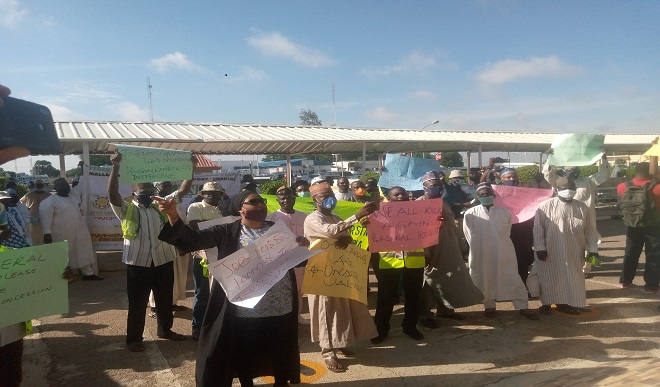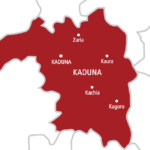The strike action on Monday, January 23, which lasted for 14 hours by staff of the Nigerian Aviation Handling Company (NAHCO) Plc and frustrated the travel plans of hundreds of air passengers is one too many. The industrial action led to the delay or outright cancellation of several domestic and international flights, with attendant loss of revenue for an economy that is struggling.
According to the National Union of Air Transport Employees (NUATE) and Air Transport Services Senior Staff Association of Nigeria (ATSSSAN), they decided to proceed on the strike after making no headway in negotiations with the management of NAHCO for the review of salaries since June, 2022.
The attempt by the NAHCO management to downplay the effects of the strike, claiming that it had no significant impact on its business operations because it lasted only a few hours, smacked of insensitivity, especially to those who must have missed out on important appointments; be they medical, business or even leisure. Time, as they often say, is money.
One of the major players in Nigeria’s aviation industry, Air Peace, said it lost about N500m to the strike as its aircraft were unable to fly.
“Neither NAHCO nor the striking union informed us of an impending strike. Our staff reported to work and noticed an ongoing industrial action. If we were informed beforehand, we would have conveyed same to our passengers early enough,” the airline said.
The same story is true for many other airlines, including those that had to return to their points of takeoff, incurring losses in the process.
To be sure, labour strike in the aviation sector is not limited to Nigeria. Just this Wednesday, about 300 flights were cancelled due to an industrial action over pay by workers at the Berlin Brandenburg airport in Germany. But the Nigerian experience is embarrassing nonetheless, as authorities waited till the last minute to engage the aggrieved workers who, on their part, know no other means of pushing for their rights, or have seen that the only time the authourities pay attention is when they down tools; which should not be the case. Demanding improved pay is no crime, but it must not be at the expense of the public.
Sadly, this is not the first time that flight operations will be disrupted in the name of industrial disharmony in Nigeria. Last September, operations were grounded at the Mallam Aminu Kano International Airport (MAKIA) over a dispute between the Federal Airports Authority of Nigeria (FAAN) and the Nigerian Airspace Management Agency (NAMA). But it would appear no lesson was learnt from those harrowing experiences.
The federal government, while apologising to air travellers over the industrial action of by NUATE and ATSSSAN, vowed to enforce the section of the Civil Aviation Act (2022) disallowing employees from embarking on flight-crippling strikes.
The Minister of Aviation, Hadi Sirika, while speaking on the strike action, told State House correspondents that, “There are other ways of channeling issues when they arise, but they (aviation workers) are not permitted to go on strike because aviation is an essential service.”
But the best way to stop this embarrassment from recurring is for the authorities to pay attention to the welfare of the workers through periodic improvement in conditions of service. The authorities should also establish a harmonious relationship between staff and management, where issues can be raised and problems solved before they get out of hand.
When agreements are voluntarily reached also, the details should be followed to the latter. Sometimes the authorities renege on promises made and this often leads to workers resorting to all manner of actions to reclaim their rights, including embarking on strike, which seems to be the only language both parties understand. Disagreements are better addressed on the negotiation table. If this fails, the industrial court is there to adjudicate.
The workers should also be considerate in their demands and always consider the public anytime they are pushing for their rights. It is not good to hurt those that have not wronged you in any way, because when employees down tools, those who feel the pinch often times have no link or input to their employers’ decision and actions.
So, while it is heartening that this round of strike did not last long, we must work towards making sure they don’t happen at all.

 Join Daily Trust WhatsApp Community For Quick Access To News and Happenings Around You.
Join Daily Trust WhatsApp Community For Quick Access To News and Happenings Around You.


